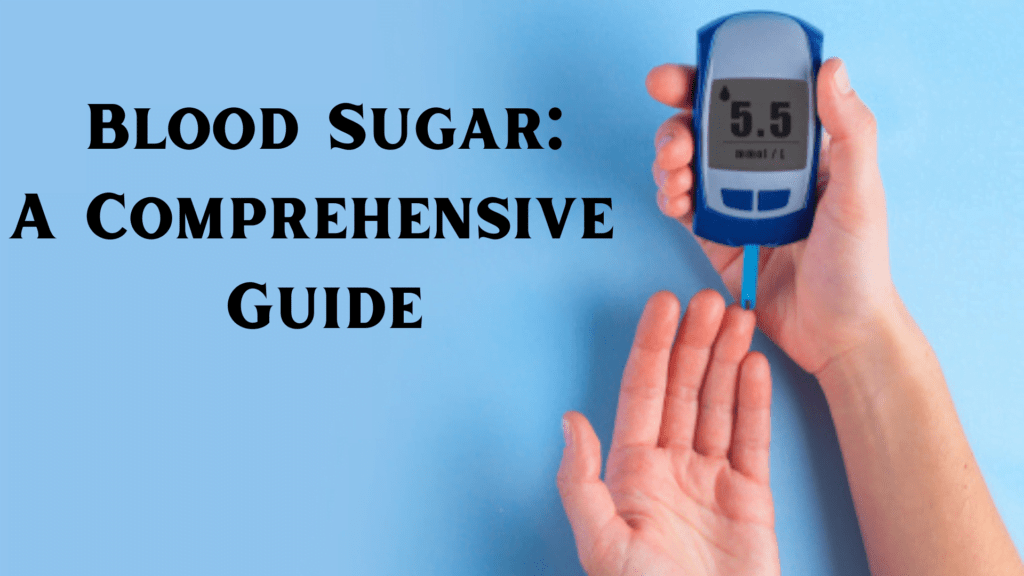The human body is an amazing machine. It regulates its own blood sugar levels, which can be both amazing or terrifying. Type 2 diabetes is when your blood sugar level is too high. You need to take pills or change your lifestyle so that your blood sugar level stays in a healthy range. In this guide, we will learn how your body reacts when your blood sugar is not healthy and what you can do to make it better.
Contents
Blood Sugar And Human Body
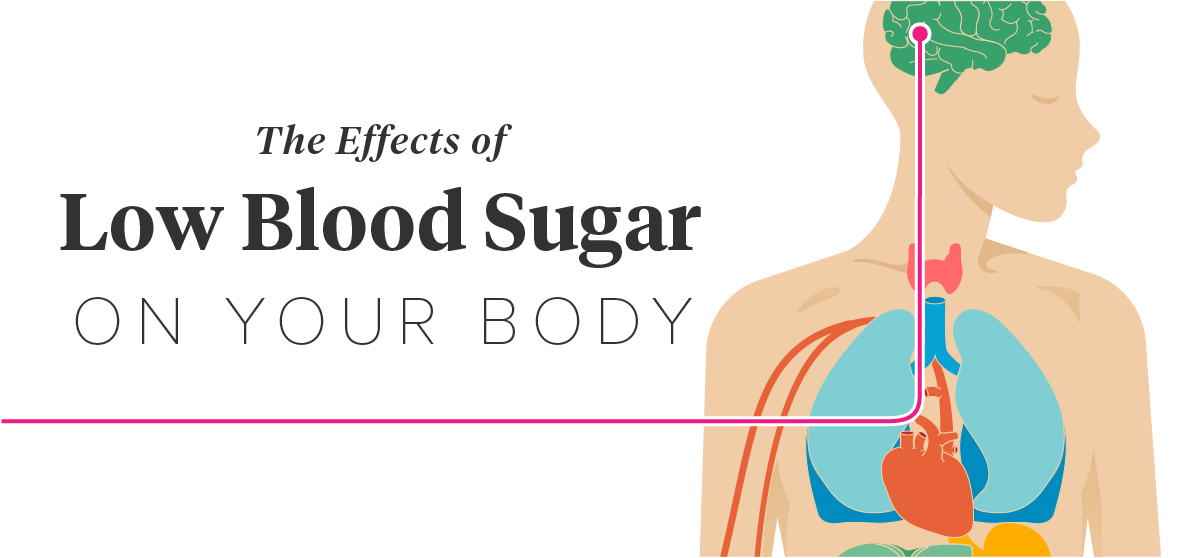
There are four liters of blood in one person’s body. Sugar is glucose and it helps your body function. Glucose acts like energy for every cell, organ, tissue, and muscle in your entire body! Without sufficient amounts of glucose going throughout the body, you could die. With too much glucose, cells will become overworked and eventually be damaged or even killed. This is known as a blood sugar spike. The human body is well-equipped to handle small changes in the levels of blood sugar. To do this, it sends insulin into your bloodstream. This helps move it from your bloodstream to places where it can be stored, like in your liver and muscles.
Some cells cannot produce insulin or have become resistant because of obesity. This means that your blood sugar level might not be regulated. When this happens, diabetes can develop. This is why it is important to monitor and maintain a healthy blood sugar level for people with type two diabetes who are at risk of complications from high levels of blood sugar.
What are Blood Sugar Targets?
Blood sugar targets are a preset target for the level of blood glucose in your body. Doctors have found that people are healthiest when their fasting levels are around 70-90 mg/dL, and after they eat, they should be around 120-140 mg/dL.
Benefits of Blood Sugar Targets
- Lower risk for obesity, type II diabetes, and cardiovascular disease
- Improved concentration level of children
- Prevention of neurodegenerative disorders
- Improved sexual function and fertility
- Reduced risk for certain cancers
As you can see, there are a number of benefits to keeping your blood sugar in the healthy range. The best way to do this is by eating a balanced diet full of whole foods and exercising regularly. However, many people have trouble doing this on their own due to poor health or lack of time. If this is the case, you may want to consider taking supplements or medications.
Symptoms
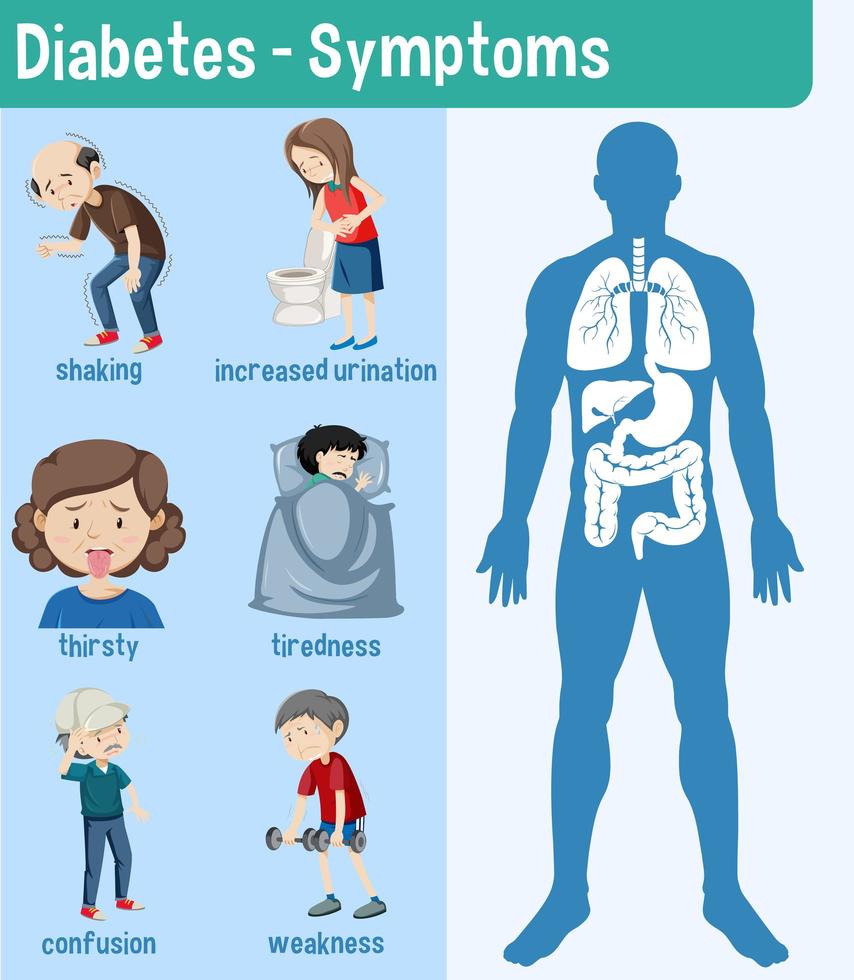
In order to get a diagnosis on blood sugar levels, it is important for the individual to have an idea of what their current numbers are. If you do not know your own readings or if they vary a lot, then getting tested would be the best option. Taking multiple tests will help doctors diagnose your blood sugar levels.
You should know the numbers in relation to what is average. Sometimes people get tested by a lab. It can tell you if your health is good or not good. Sometimes testing at home does not provide accurate results due to stress or the use of certain drugs.
There are three basic levels for blood sugar diagnosis: hypoglycemia, normal glucose regulation, and hyperglycemia.
Hypoglycemia Symptoms
When the body does not have enough insulin, you will feel shaky, tired, grumpy, and hungry. These symptoms can also be caused by other things like stress, not getting enough sleep and exercise, smoking cigarettes, or drinking alcohol.
Normal Glucose Regulation
When the body has a normal response to insulin, then people will typically not have any symptoms at all. If they have diabetes for a long time, then they may notice fatigue and dry mouth.
Hyperglycemia Symptoms
When the body has a lot of glucose in the blood, that can make a person feel thirsty and want to go to the bathroom. This might also make a person’s vision blurry. It can also cause headaches, mental confusion, or drowsiness. If these conditions go on for a long time, they can lead to diabetic coma or death.
Diagnostic Procedures
Doctors can do a physical examination and find out if they have high blood pressure, which is common with diabetes. Doctors might check for problems with your foot or eyesight. If they think it is type 2 diabetes, they will make you drink water and do tests on your urine. They will also take a blood test (fasting glucose level) after you haven’t eaten for a while. If you have diabetes, they will do a test to see if it is Type 1 or 2.
Low Blood Sugar Levels
Symptoms of low blood sugar levels include shakiness, weakness, cold sweat, paleness, headache, and hunger. You may also have a fast heart rate or be breathing faster than normal. If you do not treat this right away then it will get worse after a while with symptoms like confusion, drowsiness, and seizures. This is very dangerous.
What causes Low Blood Sugar?
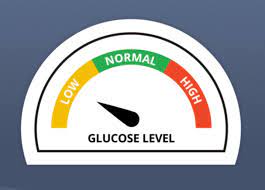
There are many things that can contribute to low blood sugar levels in the body. Some of these include stress, an unbalanced diet or not eating enough food throughout the day, too much alcohol intake (especially when on diabetes medications), pancreatic tumor, kidney failure, liver disease and cirrhosis (liver problems), Cushing’s syndrome (overactive adrenal gland), excessive exercising, and infections (like pneumonia or urinary tract infection).
Treatment
Your body does not store sugar so it is important to eat throughout the day. If you have hypoglycemia, your blood sugar can drop too low if you don’t eat enough food. Symptoms may be different for everyone but common symptoms include dizziness, headache, and nausea. Your doctor may prescribe insulin injections to help regulate your blood sugar. If you have symptoms of low blood sugar, eat a carbohydrate such as fruit juice or glucose tablets. This will help your blood sugar go up.
Blood Sugar is the amount of glucose in our bloodstream at any one time. Glucose is a type of sugar that cells use for energy. It comes from digested carbohydrates or from the breakdown of stored glycogen. Blood sugar is important for our bodies. It gives us energy. It should be between 70-110 before a meal and less than 140 after a meal.
High Blood Sugar Levels
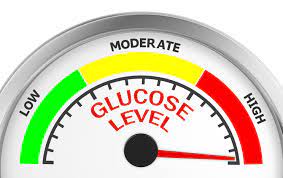
It is a condition that often occurs in people who have diabetes. It is common for people to have type two diabetes. This can be caused by being overweight, stressed, or not being active. You will get high blood sugar when your body can’t break down all of the sugar it needs. Your body might have too much sugar in it. This is bad because you could get a lot of health problems very fast, like diabetes and heart disease. Let’s talk about what we can do to keep this from happening!
The pancreas produces insulin to make your body use glucose for fuel. But if your pancreas doesn’t produce enough, or if it is ignored by cells, you can have high levels of glucose in your blood. This glycation can happen. Glycation is a chemical reaction that happens when sugars in your body bond with proteins and fats without an enzyme. This can result in swelling, stiff joints, pain, and even blindness over time if not managed properly. The cells are prevented from absorbing glucose which builds up in the bloodstream instead.
What Causes High Blood Sugar?
The following things can cause high blood sugar:
- A diet that is high in carbohydrates and refined sugars. If you eat a lot of sugar, your body will make insulin. It needs to make more because you eat a lot of it. This means that the cells do not have enough glucose for energy. It doesn’t have enough energy so it stores it as fat. You’ll gain weight if this goes on too long.
- A lack of exercise and movement is a reason for high blood sugar. This means that the cells do not get enough energy from glucose. If you are not exercising, your body will not burn calories. This can lead to glycation build-up in the bloodstream. Your muscles require insulin sensitivity so if they are not working they cannot use insulin.
- Stress can cause high blood sugar. When you are stressed, your body produces cortisol and norepinephrine. These two hormones mean that the level of glucose in your bloodstream will go up. Your body needs more energy. It makes a lot of insulin which causes your cells to ignore the hormone’s signal.
- It is important for your body to get enough sleep. When you are not getting enough sleep, it can make it harder for your body to control your blood sugar level.
Treatment
The treatment you receive depends on your specific condition. If you think that you have high blood sugar levels, then you need to see a doctor and get an examination. There are some ways to treat it at home, such as:
Making sure that you eat healthy foods with little or no added sugars is the first thing we can do for our bodies. If you eat too much sugar then it can cause your insulin levels to go up. We need this level because if it is too high, then we have high blood sugar or diabetes.
Exercise is important for everyone. It will help our cells to become more sensitive to insulin and lower glucose levels. In other words, if we are more active then our muscles will use glucose for energy instead of storing it as fat.
The final thing you can do is to make sure that you are getting enough sleep! When we don’t get the right amount of rest at night, it makes things harder for our bodies to control blood sugar levels. We need seven or eight hours each night to be healthy.
If you do these three things, then you can prevent high blood sugar levels from becoming a problem!
Blood Sugar By Age
It is normal for our blood sugar levels to change when we are growing, but they can also be affected by age.
The most common time that you will see high blood sugar in the younger generation is during puberty. This happens because your body goes through a lot of changes which means that it needs more energy than usual. You might notice this if you eat a lot and still feel hungry.
Another time that we see high blood sugar levels in the younger generation is during pregnancy. During this time, your body produces more insulin than usual to be able to use glucose for energy because of your baby’s growth. This can happen even if you didn’t have high blood sugar before becoming pregnant!
Children

There are a few reasons that we might see high blood sugar in children. If they have type one diabetes, then their body does not make enough insulin to use glucose for energy.
In other cases, the child may be overweight or obese which means there is excess glucose in the bloodstream from eating too many carbs and sugars. Their pancreas is producing insulin to help control their blood sugar.
Adults
Adults can also experience high blood sugar levels, but there are different causes than in children and teenagers! If you think this might be happening to you, then it is important that you get tested because the treatment will depend on your condition. Many adults who have high blood sugar levels are overweight or obese.
If you have high blood sugar, then your body does not respond to insulin messages correctly. This means that glucose stays in the bloodstream instead of being used for energy! The most common reason this happens is that you eat too many carbs and sugars throughout the day. You might also be more likely to experience this if you are overweight or obese.
Old People

Older adults might also notice high blood sugar levels. This is because as we age, our cells become less sensitive to insulin and it takes more of the hormone to do its job.
If your older loved one has been eating a lot of sugary or starchy foods then they can see higher than normal glucose levels even if their body makes a lot of insulin. This is a sign that they need to make some changes in their diet!
When you have high blood sugar levels, then it means your body isn’t using glucose for energy as it should be. You might not even know it’s happening because there aren’t always symptoms associated with this condition. If left untreated over time, then high blood sugar can lead to serious health problems like heart disease, obesity, and even nerve damage.
The good news is that you might be able to lower your blood sugar levels by making some changes in your everyday life! You don’t have to do it alone; if you are having trouble managing your diet then consider getting help from a nutritionist or diabetes educator.
If you are concerned that you might have high blood sugar levels, then take the time to schedule an appointment with your doctor! They will be able to perform some tests and give you more information about what is happening in your body.
With these three simple guidelines, it should become a lot easier for you to manage your blood sugar levels and get the right treatment.
How, When, and Why of Blood Sugar Testing
When you are diagnosed with diabetes, your doctor will likely suggest that you start testing your blood sugar levels. The test is easy to do and can be done at home or at work! It’s important for everyone who has high blood sugar levels to monitor their glucose level on a regular basis.
How can I check my Blood Sugar?
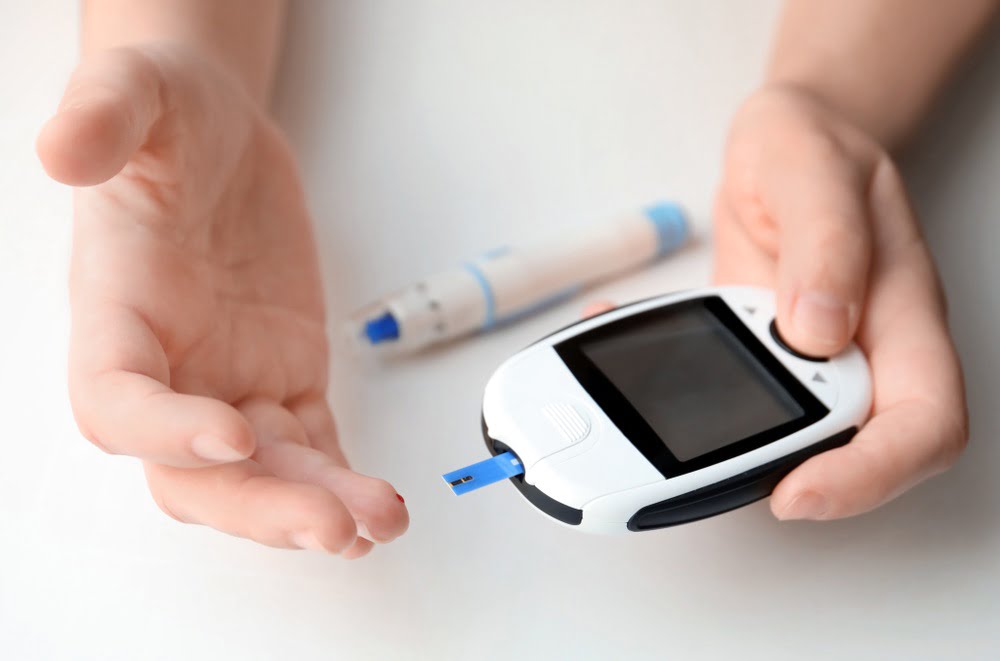
There are a few ways that you can check your blood sugar levels. You can use a glucometer, test strips, and a lancing device which is the most common method. This device gives you a drop of blood from your fingertip or another part of your body where there is skin near the surface such as on the backside of your arm. This is sterilized and then rolled across the test strip which contains chemicals that change color based on the level of glucose in your blood.
- Glucometer: These are similar to a blood test that you have done at the doctor’s office. You will need to use this for two reasons: if your glucose levels go too high or too low, it is important that you know so you can treat them right away.
- Test Strips: These are used with a glucometer and give small amounts of blood to the strip. If your blood has a lot of glucose, the meter will turn red. It tells you how much glucose is in your blood by reading the different colors.
- Lancing: This device can be used before you eat or after you exercise. This will tell if your levels of sugar are high or low. It is important to know what your levels are. If they are high, you may need to take medicine or do something healthy like eat food.
When should I check my Blood Sugar?
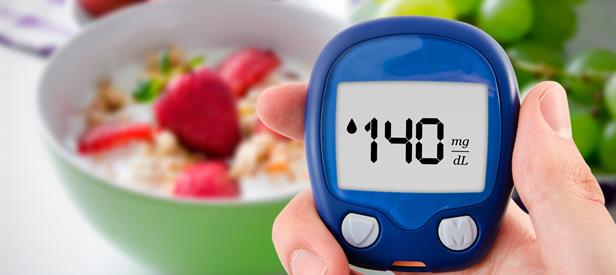
Doctors recommend checking your blood sugar levels when you don’t have any symptoms. Check them at the following times::
- After eating breakfast
- At bedtime, about an hour before you go to sleep.
If your doctor has told you when to test your blood sugar, then follow that piece of advice instead of the general guidelines.
Why should I check my Blood Sugar?
People with diabetes need to monitor their glucose levels. This will tell us if the treatment is working or if we need to make any changes. People with high blood sugar who do not have diabetes should be careful because it can be a sign of other health problems like heart disease, kidney failure, or even cancer.
If you don’t check your glucose levels, then you can’t treat it at home and will need to go see a doctor. It is important to keep blood sugar levels healthy. It can make you sick if they are too high. When they are high, the problems get worse and worse. If they are low, then your treatment may not work as well.
How Do Carbs Affect Blood Sugar?
- Carbs are the body’s main source of energy.
- When blood sugar levels drop too low, it can cause shakiness or lightheadedness and other symptoms, such as anxiety or hunger pangs.
Blood sugar can also affect mood. Some people may have high blood sugar levels. It can cause anxiety or irritability. It might even make someone act like they have a mental illness.
People with diabetes have a high risk of depression. But people who struggle to manage their health might be affected by low glucose levels too.
It’s important to know the signs of low blood sugar and how to manage them. The most common sign is feeling shaky, anxious, or lightheaded.
Other symptoms include hunger pangs, irritability, headaches, and confusion.
If you have a feeling that your blood sugar levels are going down, then it is likely that they are going down too fast for the body to adjust.
It’s important to understand how different foods affect blood sugar. Some types of carbs have a greater impact on the level of sugar in your blood.
Carbs can break down into glucose very quickly or more slowly depending on what they’re made up of.
Carbs can affect how your body reacts to food. Carbohydrates from simple sugars, like sugar and white bread, resulting in a quick increase in blood sugar levels. Carbohydrates from complex sources, like whole grains and brown rice, provide a more moderate increase in blood sugar levels.
These carbs are made of different things. The more fat and fiber they have, the more slowly they break down into sugar in your body.
Management of Blood Sugar

It is important to take care of blood sugar levels. It can be hard for people who have diabetes because they have to watch their sugar levels.
People who take insulin need to monitor their food intake to avoid low and high glucose levels. They should not eat too many carbohydrates because it will make insulin less effective.
Carbohydrates make sugar. If you have diabetes, you need to know how much you are eating and when.
If you have Type I diabetes, your blood sugar will go down too much if you don’t eat enough. Eat often and in the right amounts for your insulin requirement.
You can use a glucose meter to check your levels before meals and after you inject insulin.
People with type II diabetes have a problem with their bodies. The problem is that their bodies don’t use the insulin they produce. They can end up with high blood sugar levels after meals, and low glucose levels in between meals if they do not eat enough food.
It’s important for people who have diabetes to manage their stress and to get plenty of sleep. This will help keep your blood sugar levels at a good level.
Prevention Of Blood Sugar Fluctuation

Keeping blood sugar levels in balance is crucial. If they are too high or low, it can be dangerous for the body.
People with diabetes need to make sure they check their blood sugar levels when they eat and also take their medication at the right times.
The best way would be to visit a doctor if you think that your blood sugar levels are going up or down too quickly.
You need to eat the right foods if you have diabetes. You need to be able to keep your blood sugar level from changing too fast or being too low for an extended period of time.
There’s no need to be scared about having high glucose levels if you have diabetes. You can take steps to manage your blood sugar levels and keep them from going high or low for a long time.
Diabetic patients need to:
- Eat the right foods
- Avoid refined sugars
- Exercise daily
- Get plenty of restful sleep every night
- Maintain healthy relationships with family members and friends
- Drink at least eight glasses of water each day
- Take medications as prescribed by the doctor
- Manage stress levels to keep blood sugar at an appropriate level.
It is important for people with diabetes to manage their condition and take care of it every day.
Conclusion
Sugar is a food that you can have in moderation. You should not eat too much sugar because if you do, then you might gain weight, get cavities, or even get diabetes. Too many sweets can make you feel sick or have an upset stomach. You might have trouble eating them if they are eaten with other foods that are high in fat or carbs.
You should limit your intake of sugary drinks like soda pop, sports drinks, fruit punch, and energy drinks as well as candy bars and ice creams for the same reason. The key is balance! Be sure to do 150 minutes of physical activity every day. Eat healthy snacks such as fruit, vegetables, or whole grains like granola bars. You can also eat some chocolate or drink a glass of milk with your meals. Be sure to keep track of what you are eating and make smart food choices! Most people do not want to deal with diabetes because it is hard. But if you take care of yourself, everything will be OK in the end.
Do you want to get rid of diabetes? Join our online diabetes consultation program and reverse your Diabetes naturally through lifestyle changes such as a Personalized Diet plan, Exercise, dieticians, and health coaches.
